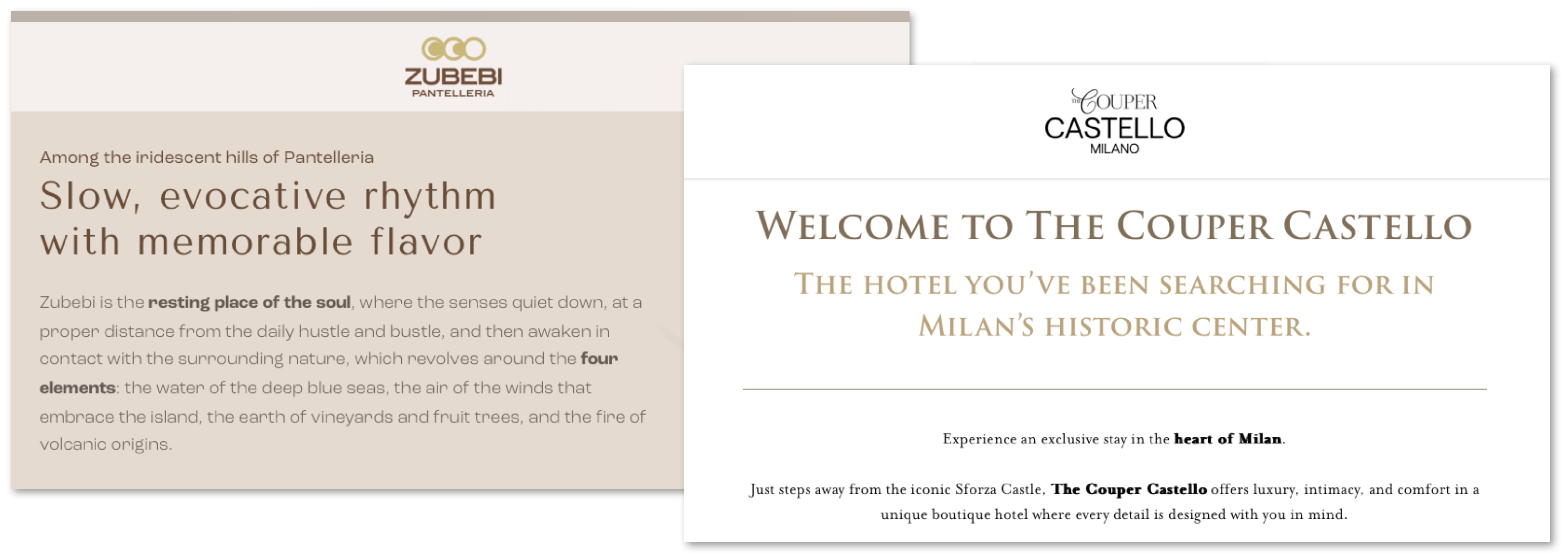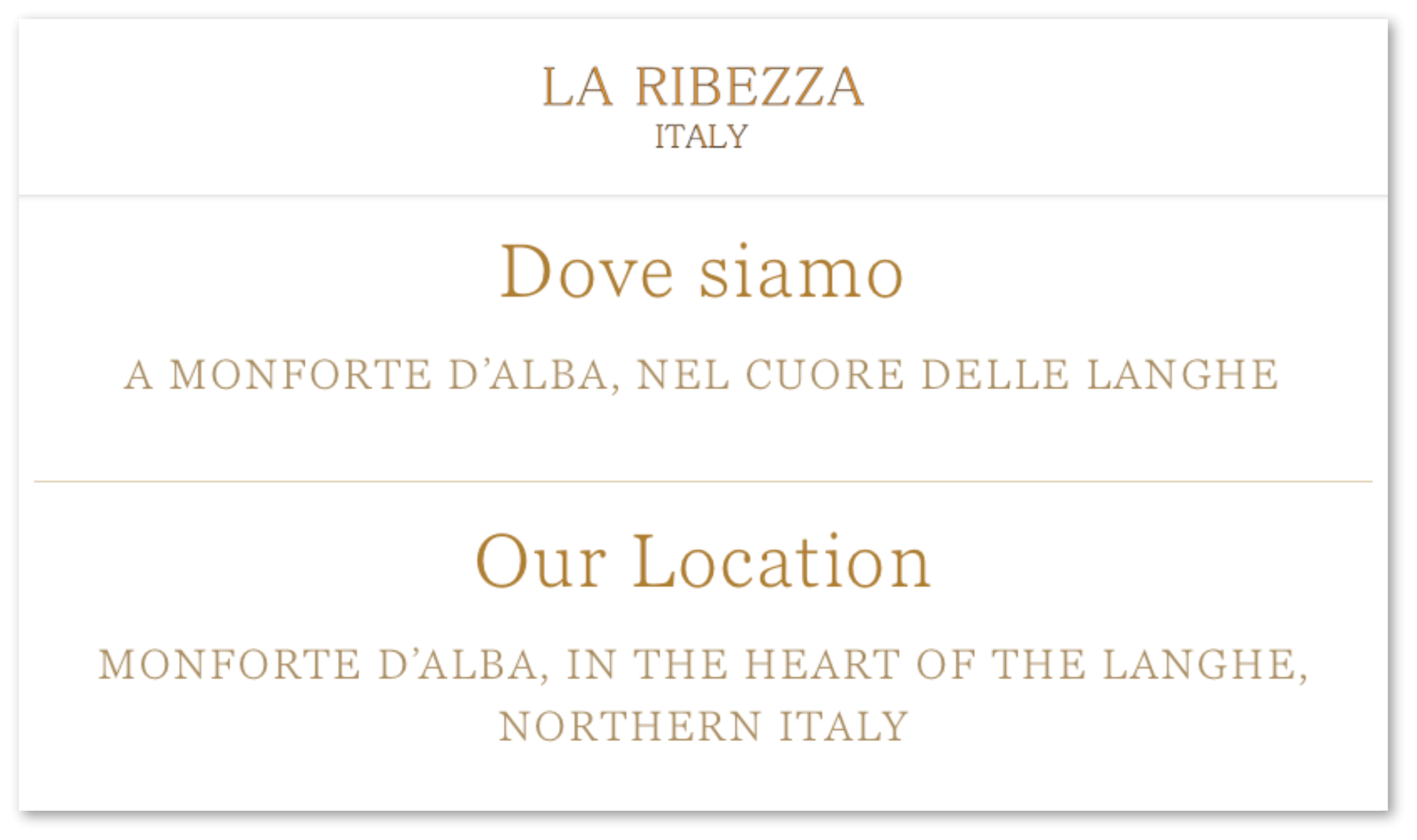Copywriting for hotels: 5 mistakes that make you lose bookings
Published in: August 2025
Of all the elements that make up a website, copywriting is perhaps the one that is most frequently underestimated. All too often, you'll come across content that lacks a clear strategy, contains outdated information pulled from old materials, or is the result of DIY translations… In fact, words matter just as much as every other aspect of communication: the text is what gives a website its voice and can determine whether a visitor decides to make a booking or leave the page.
So, here are the 5 mistakes to avoid when it comes to hotel copywriting:
1. Each hotel has its own tone of voice
Formal, or informal? Rational or emotional? When it comes to tone of voice for hotels, there is no one right answer for everyone, but there is definitely a right answer for your hotel. In this case, the real mistake isn't choosing "badly", but not choosing at all: without a clear analysis and a predefined style, you risk ending up with bland content or, even worse, inconsistent texts that change tone from page to page, failing to convey the essence of your establishment to visitors..

2. Trying to speak to everyone means speaking to no one
Writing generic content is one of the most common mistakes hotels make, even when it comes to targeting their audience: speaking directly to your specific target is the best way to truly capture attention. Families, couples, and business travellers – just to name a few – often look for very different types of accommodation and, for this reason, need different kinds of messaging: without tailoring your content to your audience, your copy remains vague, and visitors may struggle to understand if your hotel is the right fit for them.
3. Be concise... but not overly
"Users' attention spans are shrinking, so "cut where you can and be concise" is one of the mantras of the web – and it's partly true: online visitors are looking for quick, easily digestible content. But when it comes to a hotel website, being concise should never come at the expense of the main goal: providing clear and complete information. The best way to do this? A well-structured navigation tree, featuring key pages such as "The Hotel" or "Where to find us" with strategically highlighted key information on available rooms, times, and services. This is an advantage for the user experience, for SEO positioning... and for the hotel itself, which will find itself with fewer superfluous requests for information that can easily be found online.
4. Translating is not always enough
Another common mistake? Assuming that a literal translation is enough to have a website in other languages. Not only can the message feel unnatural, but a simple translation often overlooks keywords, cultural references, or information that might seem obvious to native speakers, such as geographical details or local customs. Localisation goes beyond translating words: it adapts content, tone, and cultural references for the target audience, making essential information clear, improving SEO, and reaching international clients.

5. A feast for the eyes
Imagine this scene: you open a web page and an infinite block of text appears in front of you, without bold text, images or calls-to-action. What would you do? Most likely, you'd close the page. One of the most common mistakes in copywriting is precisely this: writing the texts "separately" and then pasting them onto the site. A high-performing website, on the other hand, comes from the synergy of multiple skills: the seamless integration of images, copy, and user journey makes browsing more enjoyable and engaging, ultimately guiding the visitor toward a direct booking. The best way to achieve this? Relying on a full-service agency that can deliver a turnkey website, consistent in every detail and, most importantly, ready to convert.
Discover more following the tags:
